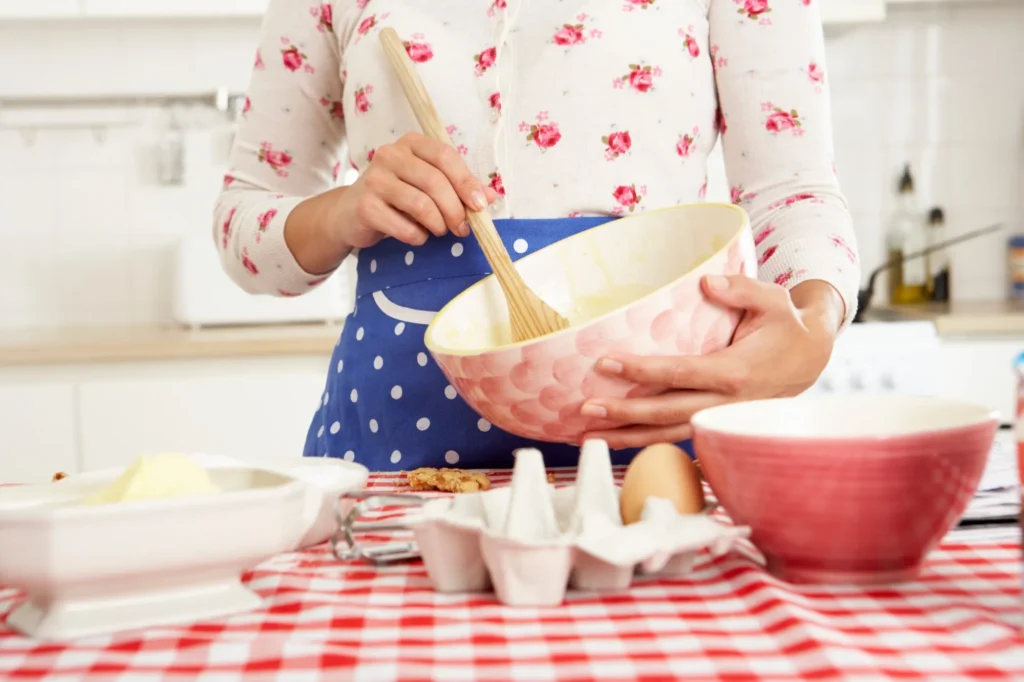If you often find yourself overwhelmed by worry, you’ve probably looked into different ways to ease your anxiety. Among the many stress-relief techniques, you may have come across something known as “stress baking.” But does baking really help reduce anxious thoughts? For many people, the answer is a resounding yes.
Baking engages both the mind and body in a focused, structured activity that can serve as a form of mindfulness. It offers a sensory-rich experience—mixing ingredients, kneading dough, and watching a recipe come to life—that can help shift attention away from anxious thoughts. While stress baking isn’t a cure-all, it can be a valuable tool in managing anxiety. Let’s explore the reasons why baking can be such an effective stress reliever and what you can do if anxiety continues to feel overwhelming.
My Personal Connection to Mindfulness and Baking
As someone who deeply values mindfulness and cooking, I have found that baking is an essential part of my own stress management routine. Once a week, I set aside time to bake something new and challenge myself to learn a new baking skill. Whether it’s perfecting a sourdough loaf, mastering the flakiness of croissants, or experimenting with intricate pastries, the process provides me with a sense of focus and accomplishment. Baking is my way of engaging with mindfulness—it allows me to be fully present in the moment, letting go of external worries and immersing myself in the art and science of the craft.
The Science Behind Stress Baking
Anxiety often manifests as excessive worrying, overthinking, or feeling a loss of control. Engaging in activities that promote mindfulness, repetitive motion, and creativity can help counteract these feelings. Here’s how baking fits the bill:
1. Baking Requires Focus
Anxiety tends to thrive when our minds wander or fixate on uncertain outcomes. Baking, however, demands attention to detail. Measuring ingredients, following precise instructions, and timing the baking process requires concentration. This forced focus can redirect your thoughts away from your stressors, much like meditation or deep breathing exercises.
2. A Sense of Control
One of the most distressing aspects of anxiety is the feeling of losing control. The world can feel chaotic, and it’s easy to feel powerless in the face of uncertainty. Baking, on the other hand, allows you to control variables—choosing a recipe, measuring ingredients, adjusting oven settings, and deciding when to mix or knead. These small, deliberate choices can restore a sense of power, providing comfort amid anxious feelings.
3. Repetitive Motions Are Calming
Many aspects of baking involve repetitive motions: whisking, kneading, rolling dough, stirring batter. These rhythmic actions can have a soothing effect, similar to knitting, coloring, or even rocking in a chair. Repetitive movements help activate the body’s relaxation response, reducing stress and promoting a sense of calm.
4. Baking Evokes Nostalgia and Comfort
For many people, baking is tied to fond childhood memories—perhaps baking cookies with a grandparent or helping a parent stir cake batter. Recreating these moments as an adult can provide comfort and emotional grounding. The familiar smells, textures, and tastes of certain baked goods can trigger positive memories, helping to counterbalance stress.
5. The Joy of Sharing
Baking often isn’t just about the final product; it’s about sharing that product with others. Many people bake for their loved ones, bringing cookies to coworkers, surprising friends with homemade bread, or enjoying a slice of cake with family. Acts of kindness and connection boost mood-enhancing chemicals like oxytocin and serotonin, which can help combat feelings of loneliness and anxiety.
The Therapeutic Aspects of Learning New Baking Skills
Beyond stress relief, learning new baking techniques can provide a deep sense of achievement. When I dedicate time each week to mastering something new—whether it’s laminating dough for a puff pastry or refining a delicate meringue—I’m not just baking; I’m engaging in active learning and skill-building. The process requires patience, resilience, and problem-solving, all of which contribute to a sense of personal growth. This structured learning approach can be particularly beneficial for those who experience anxiety, as it reinforces the idea that challenges can be overcome with persistence and practice.
When Stress Baking Isn’t Enough
While stress baking can be a helpful tool, it isn’t a substitute for addressing deeper anxiety-related concerns. If you find that anxiety persists despite your best efforts, or if it interferes with your daily life, it may be time to seek professional support. Some signs that anxiety may require professional intervention include:
– Persistent worry that doesn’t go away, even after engaging in stress-relief activities
– Difficulty sleeping due to anxious thoughts
– Physical symptoms like headaches, muscle tension, or digestive issues caused by stress
– Avoiding social situations or important tasks because of fear or worry
– Feeling emotionally drained or unable to enjoy activities you once loved
Finding the Right Support for Your Anxiety
If anxiety is interfering with your ability to enjoy life, professional therapy can provide tools tailored to your needs. Therapy can help you:
– Identify the underlying causes of your anxiety
– Develop coping strategies beyond stress baking, such as cognitive-behavioral techniques or relaxation exercises
– Learn how to regulate anxious thoughts and emotions effectively
– Build resilience and confidence in managing stressors
There’s no one-size-fits-all approach to anxiety relief, and different techniques work for different people. Whether it’s baking, exercising, journaling, or practicing mindfulness, the key is finding what helps you feel grounded and supported.
Take the Next Step
If you’re struggling with anxiety and looking for more than just temporary relief, we’re here to help. Our team has extensive experience in treating anxiety and helping individuals develop personalized strategies for stress management. We can explore together what works best for you—whether it’s baking as a mindfulness practice or integrating other therapeutic techniques.
Reach out to us today to schedule an initial consultation. Let’s work together to help you regain control and find lasting relief from anxiety.
Anxiety doesn’t have to define your daily life. With the right support, you can find peace of mind—one step (or one baked good) at a time.











